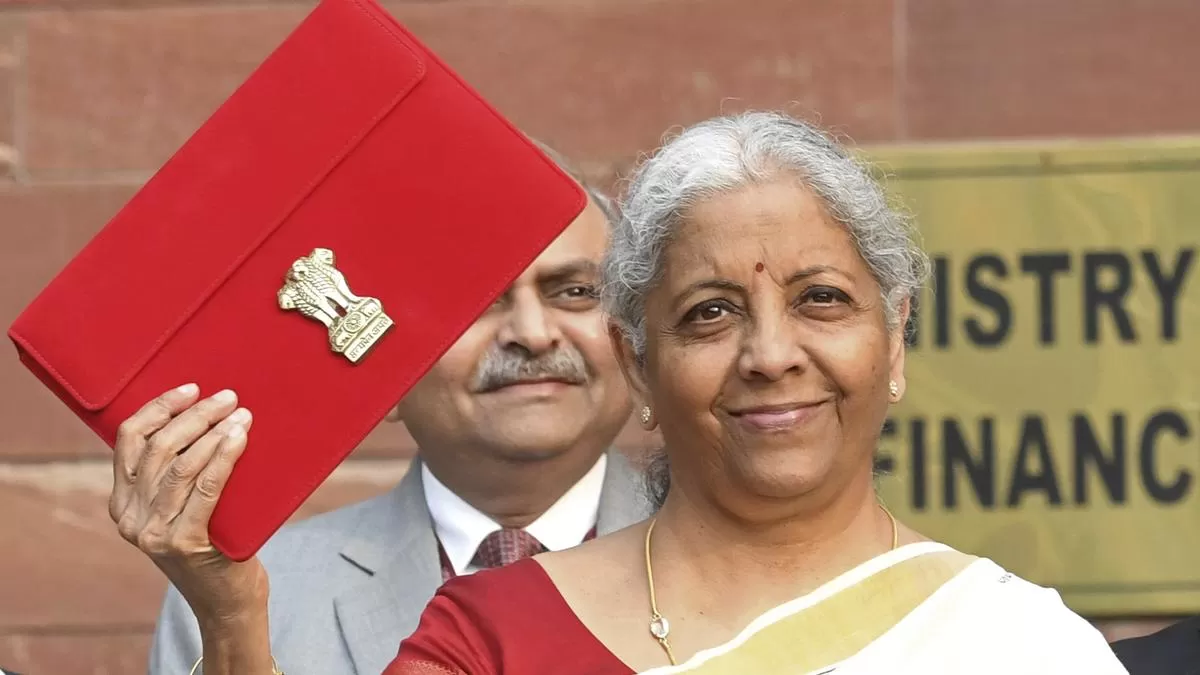On February 1, 2025, Finance Minister Nirmala Sitharaman presented the Union Budget for the financial year 2025-26 in Parliament. This marks the eighth budget by Sitharaman, making her the first finance minister in India’s history to present so many budgets. It is also the first budget of Prime Minister Narendra Modi’s third term.
Sitharaman emphasised that the budget focuses on driving growth towards a “Viksit Bharat” (Developed India), with the country maintaining its position as the fastest-growing major economy. She outlined the government’s commitment to inclusive development, improving household sentiment, and strengthening India’s middle class.
Key Highlights:
Infrastructure: The FM announced the creation of a Rs 1 trillion Urban Challenge Fund aimed at transforming cities into economic growth centres. This fund will support innovative redevelopment and improve water and sanitation infrastructure. As per the plan, up to 25 per cent of the costs for bankable projects will be covered, with the remaining 75 per cent sourced from bonds, bank loans, or public-private partnerships (PPPs). A Rs 100 billion allocation for FY2025-26 will kick-start this initiative.
Capital Expenditure (Capex): The government will offer Rs 1.5 trillion in interest-free loans for capital expenditure and provide incentives to encourage reforms.
Affordable Housing: In FY26, an additional 40,000 affordable housing units will be completed. Additionally, the SWAMI Fund 2, with a Rs 150 billion allocation, will be set up.
Nuclear Energy: A new Nuclear Energy Mission was introduced to expedite India’s transition to clean energy. The goal is to develop 100 GW of nuclear power by 2047. To encourage private sector participation, the government will amend the Atomic Energy Act and the Civil Liability for Nuclear Damage Act. A Rs 200 billion research and development initiative for Small Modular Reactors (SMRs) will be launched, with the target of having five indigenous SMRs operational by 2033.
MSMEs: Recognising MSMEs as key growth drivers, Sitharaman outlined several measures to support them. These include introducing customised credit cards for MSMEs, expanding the fund-of-funds for startups, and raising investment and turnover limits for MSMEs by 2.5 and 2 times, respectively. MSMEs currently account for 45 per cent of India’s exports.
Power Sector: Significant reforms were proposed in the power sector, particularly for electricity distribution and transmission. States will be incentivised to implement reforms in electricity distribution, and the government will provide additional borrowing capacity to states that show progress. These efforts aim to improve the financial health of power companies.
Aviation: The UDAN scheme has already connected 1.5 crore people to 88 airports through 619 routes. A revamped version of UDAN will be launched, expanding to 120 new destinations and aiming to serve an additional 4 crore passengers. Greenfield airports will also be developed in Bihar to improve connectivity.
Income Tax: A new Income Tax Bill will be announced next week, with several changes to benefit taxpayers. Income up to Rs 12 lakh will not be taxed under the new regime, and tax slabs will be adjusted accordingly. For salaried individuals with an income above Rs 24 lakh, the tax rate will be set at 30 per cent. Additionally, the limit for filing tax returns will be increased to four years, up from the previous two years.
• Tax exemptions for senior citizens on interest have been raised to Rs 1 lakh.
• TDS on rent has increased to Rs 6 lakh from Rs 2.4 lakh.
• TCS on education remittances financed through loans from specified financial institutions will be removed.
• The threshold for TCS on remittances under the RBI’s Liberalised Remittance Scheme (LRS) has been raised from Rs 7 lakh to Rs 10 lakh.
Cess and Tariffs: The government plans to streamline customs tariffs to reduce duty inversion and boost domestic manufacturing. Seven more tariff rates will be eliminated, leaving only eight, including a zero rate. The government will also simplify customs duties and propose the full exemption of Basic Customs Duty (BCD) on cobalt powder, lithium-ion battery waste, scrap, and 12 critical minerals.
Financial Reforms: The FM announced that Foreign Direct Investment (FDI) in insurance will be increased from 74 per cent to 100 per cent for firms that invest their entire premium in India. A revamped central KYC registry will be introduced to keep pace with technological advancements. Furthermore, the government will facilitate faster approvals for company mergers and create an Investment Friendliness Index to foster competitive federalism. The Financial Stability and Development Council (FSDC) will also establish a mechanism to assess the impact of current financial regulations to promote sectoral growth.





















